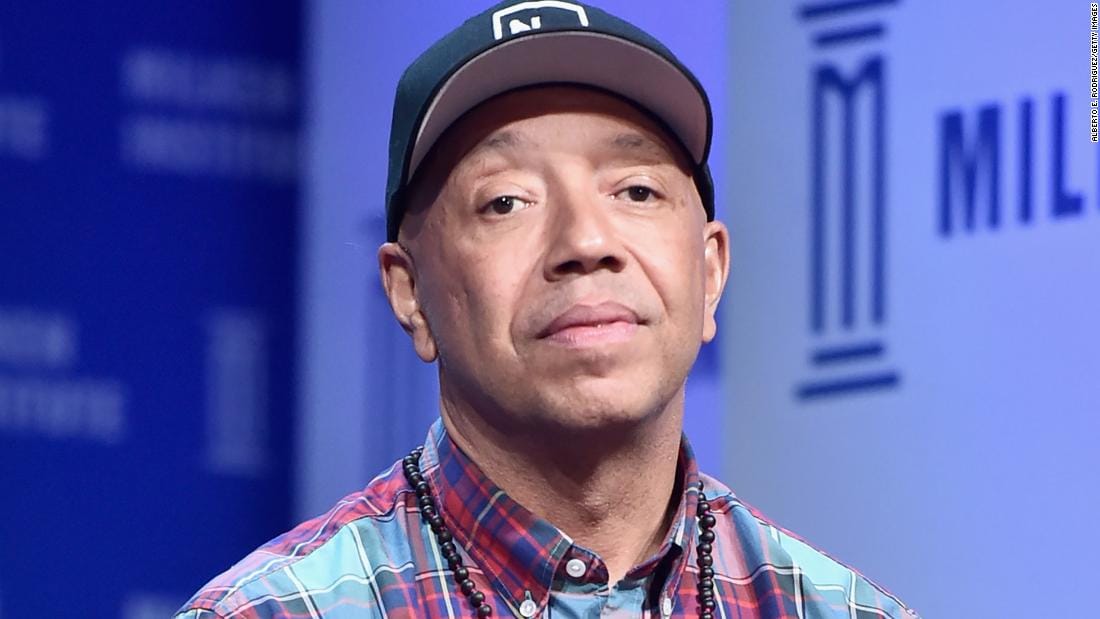In a significant legal move, former music executive Russell Simmons has filed a lawsuit against HBO for $20 million, citing defamation related to the channel’s documentary titled ‘On the Record’. This documentary, which aired in 2020, focuses on allegations of sexual misconduct against Simmons, along with broader discussions about sexual assault in the music industry. Simmons contends that the documentary presents a biased viewpoint that unfavorably affects his reputation and businesses.
Simmons, who co-founded Def Jam Recordings and has been a prominent figure in the entertainment industry, has faced several accusations of sexual misconduct over the years. However, he has consistently denied these allegations, asserting that they are unfounded and part of a broader narrative aimed at tarnishing his image. Given the gravity of these accusations, Simmons argues that the manner in which HBO presented the information in its documentary was not only misleading but also harmful to his personal and professional life.
In the lawsuit, which was filed in a New York federal court, Simmons claims that the producers of ‘On the Record’ intentionally ignored factual inaccuracies and presented the accounts of accusers in a way that misrepresented the facts. One of the major points of contention in the lawsuit is the documentary’s reliance on testimonials from individuals who Simmons argues had ulterior motives or lacked credibility. He believes this portrayal has resulted in significant damage to his reputation, as well as financial losses in his business ventures.
HBO’s ‘On the Record’ features multiple women who have accused Simmons of sexual misconduct, including detailed personal accounts that they say demonstrate a pattern of abusive behavior. The documentary’s creators aimed to highlight the struggles faced by women in the entertainment industry when confronting powerful men. Simmons, however, asserts that the documentary fails to present a balanced narrative and instead focuses solely on accusations without giving due consideration to his perspective.
Simmons also seeks to address what he claims is a cultural trend whereby powerful men are often judged and condemned in the court of public opinion before any legal due process is observed. His lawsuit raises important questions about freedom of speech, the responsibility of media outlets, and the ethical implications of documentary filmmaking. It issues a call for more rigorous standards in how allegations of this nature are reported and portrayed to the public.
The case is poised to examine the legal boundaries between documentary storytelling and defamation. Legal experts note that Simmons faces a challenging battle ahead, as proving defamation in the United States requires that he demonstrate not just that he was harmed by the documentary, but also that the statements made in it were false and made with actual malice. This standard often presents a high hurdle for public figures, especially in cases involving sensitive subjects like sexual misconduct.
Furthermore, the fallout from the #MeToo movement continues to resonate within Hollywood and beyond, and this lawsuit places Simmons at the center of an ongoing debate about accountability, media representation, and power dynamics in society. As the case unfolds, it will likely attract significant media attention and could potentially set precedents for future cases involving similar allegations and media coverage.
Simmons’ legal representatives have expressed confidence in his case, arguing that the documentary’s portrayal of Simmons not only lacks evidence but serves as an example of sensationalism that seeks to exploit current societal tensions for profit. They emphasize that their client deserves a fair platform to refute the accusations leveled against him.
As the legal proceedings begin, many in the public eye will be watching closely to see how this case develops and what ramifications it holds for both Simmons and HBO. This lawsuit emphasizes the evolving landscape of media representation and accountability, especially as it pertains to issues of sexual misconduct and the rights of individuals to defend their reputations in the face of public scrutiny.
In conclusion, Russell Simmons’ decision to sue HBO underscores a significant conflict between media representation and individual rights. As society grapples with the complexities surrounding allegations of sexual misconduct, this case may further illuminate the challenges faced by both survivors and those accused, ultimately shaping the dialogue surrounding accountability in the entertainment industry.


